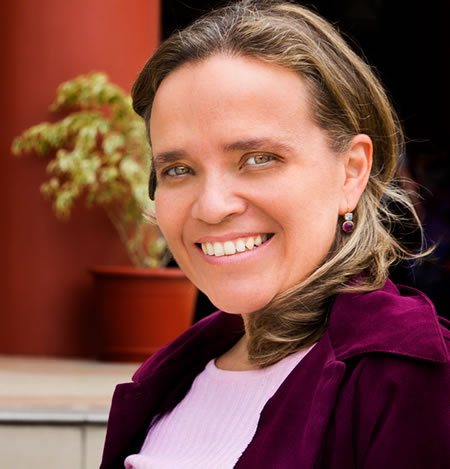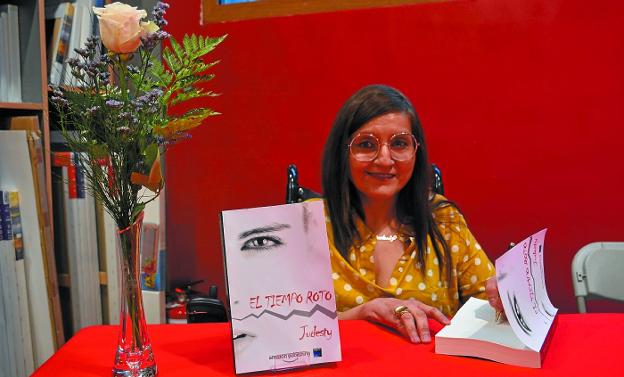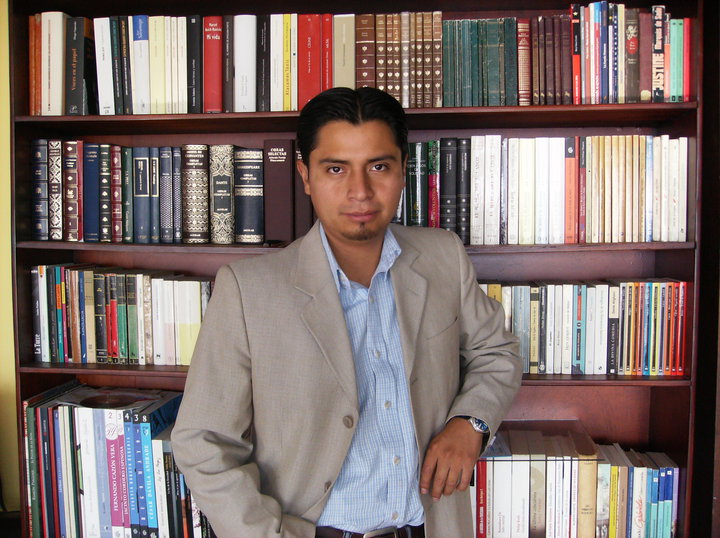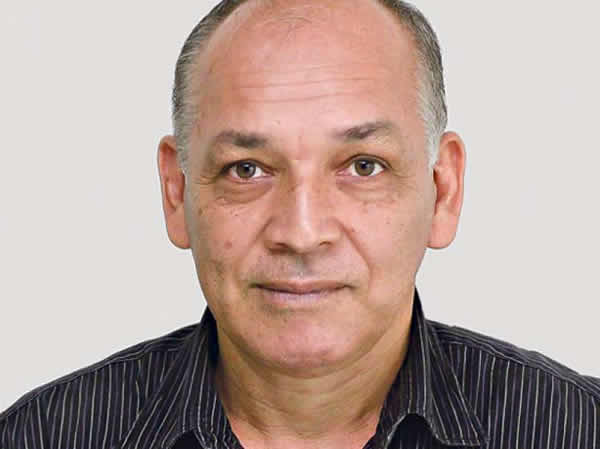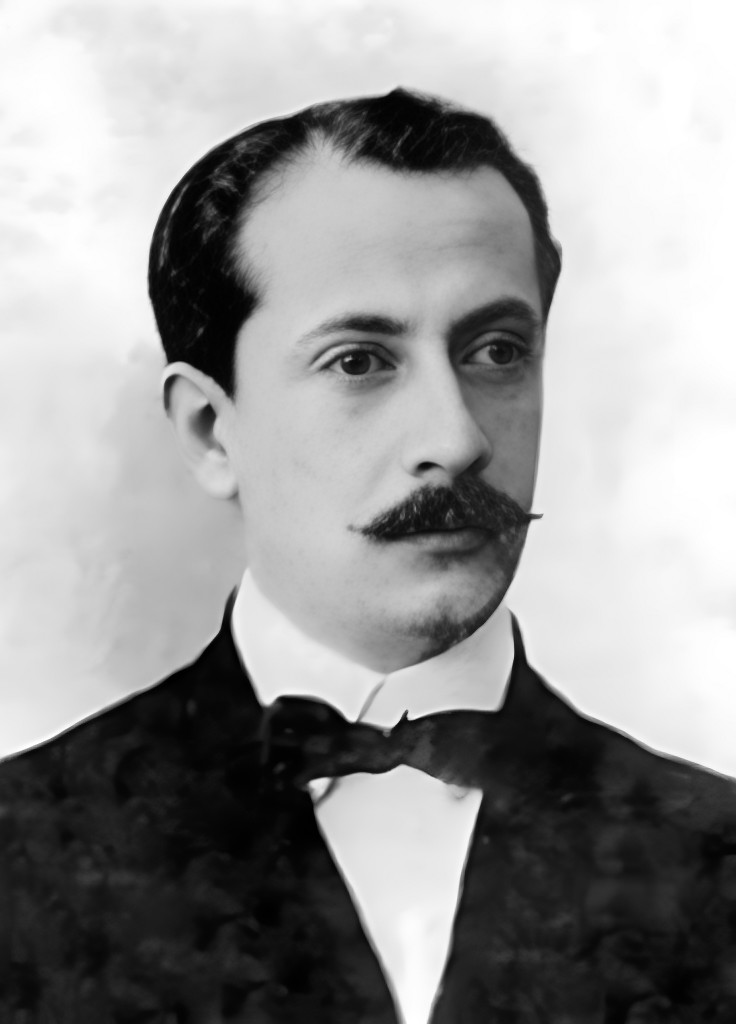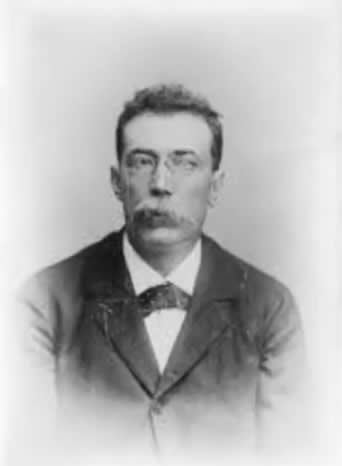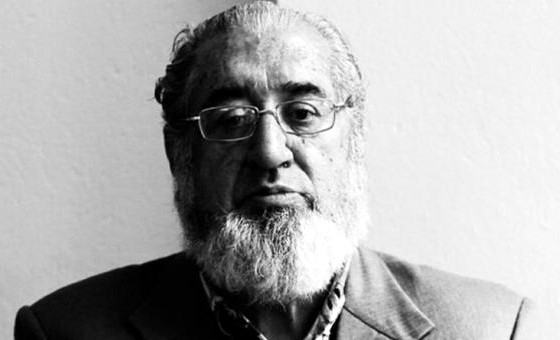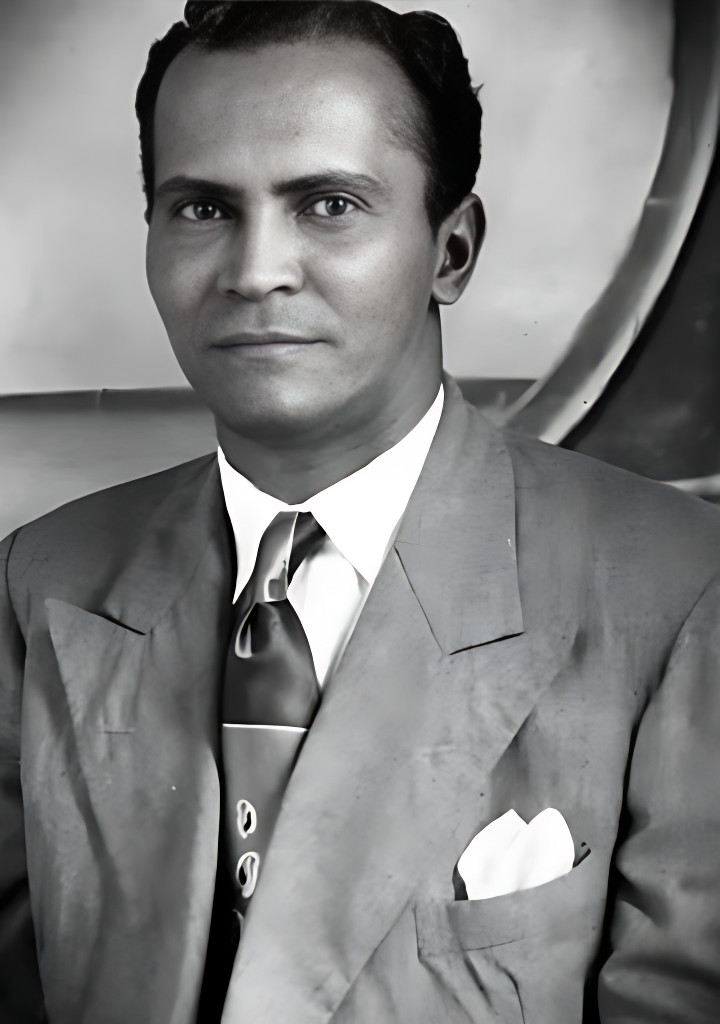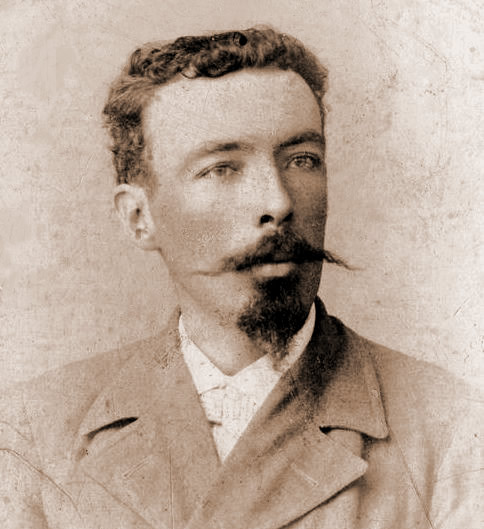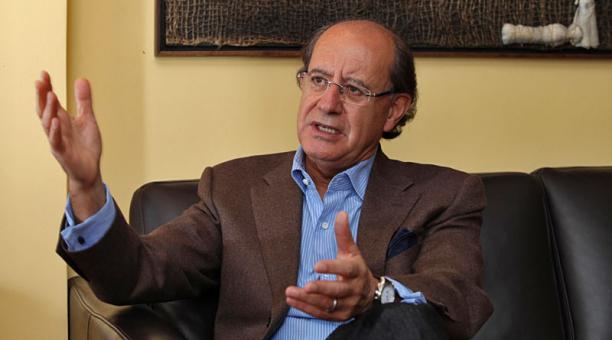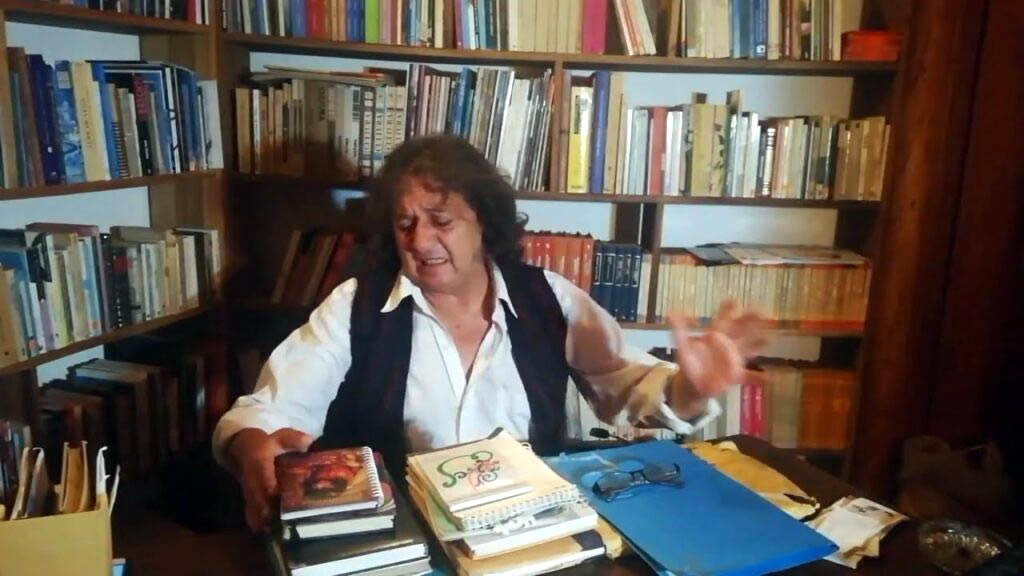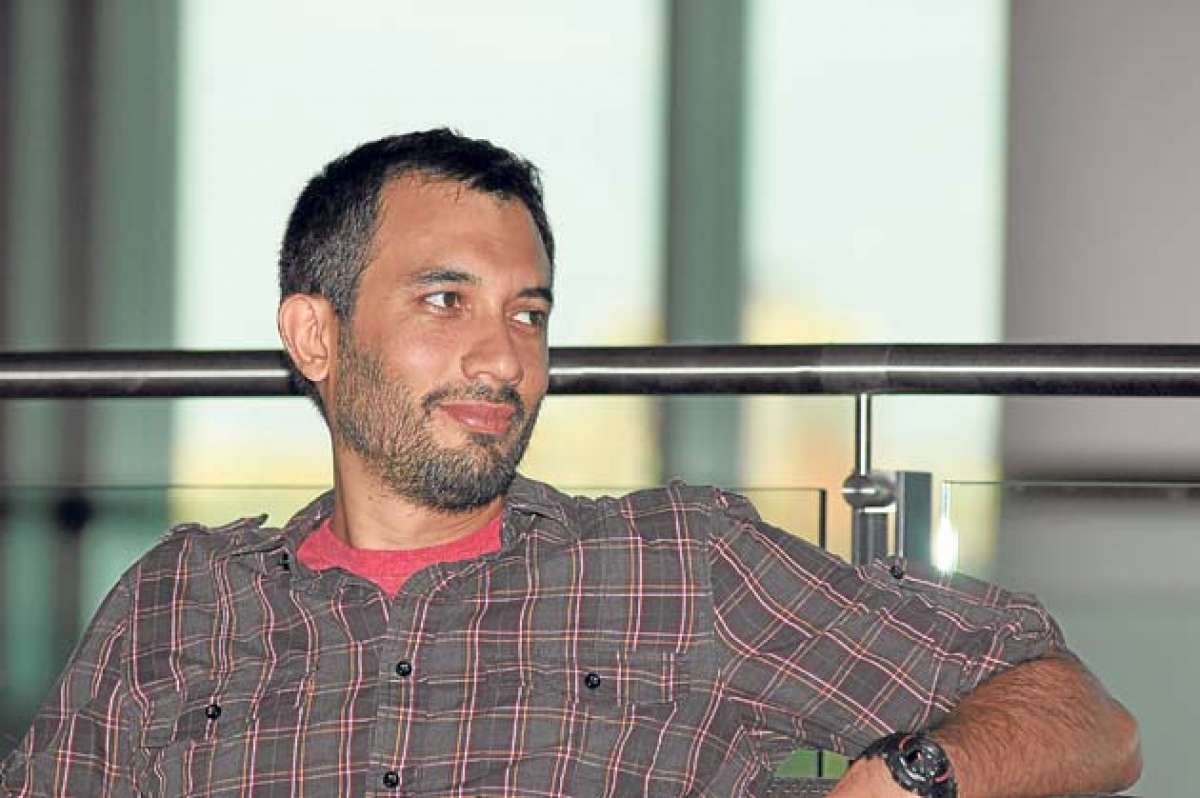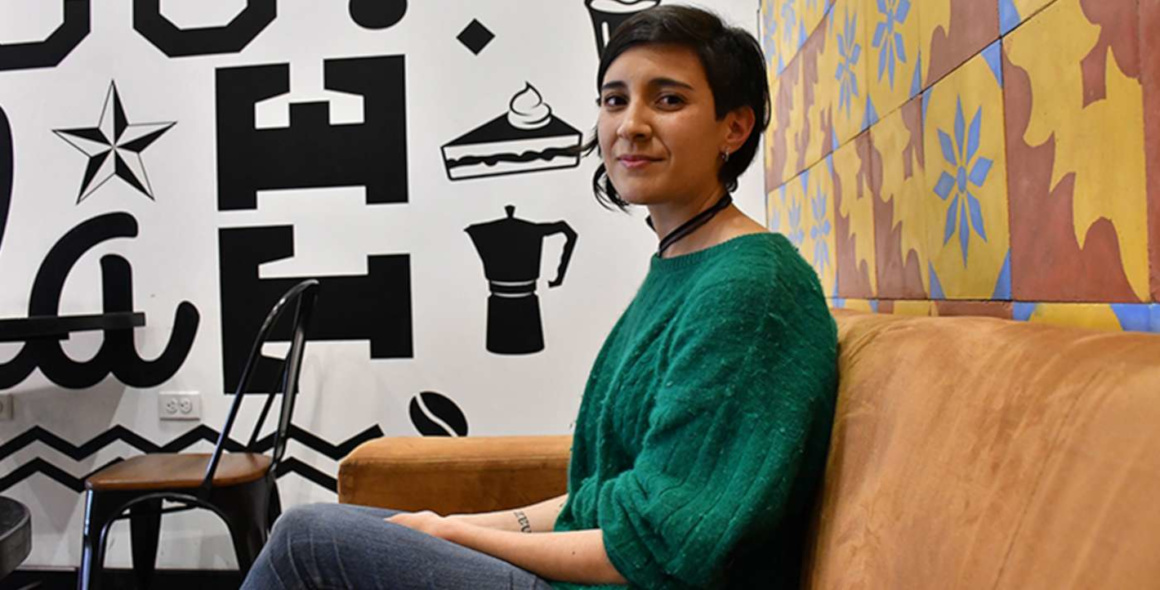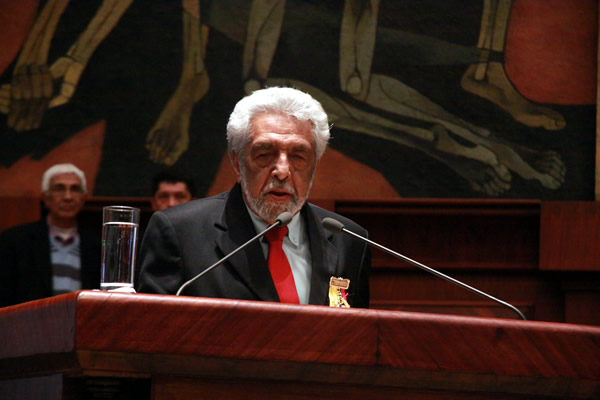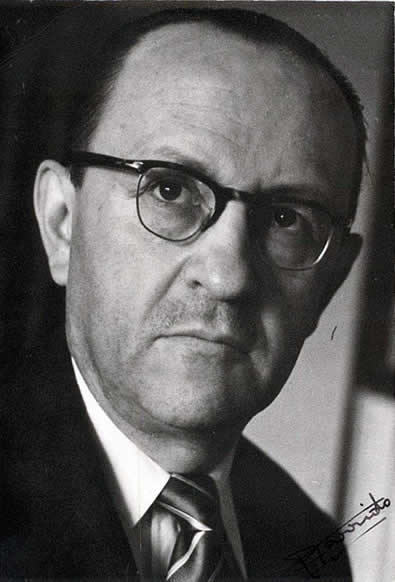Ruth Patricia Rodríguez Serrano (Loja, 1966) is an Ecuadorian writer and professor at the Universidad San Francisco de Quito. Known for her work across various genres including poetry, short stories, and novels, she has won prestigious national literary awards such as the Círculo de Lectores and the Pablo Palacio Prize. Rodríguez has also represented Ecuador internationally, notably at the World Assembly of Young Artists for Peace in Bulgaria. Her critically acclaimed works include “Putas de Cristal” (2010) and “Clepsidra. Todos fuimos margaritas” (2020), which features both a novel and a short story collection.
Continue reading “Ruth Patricia Rodríguez”Month: December 2020
Tamara Cadena (pen name Judesty)
Tamara Cadena, pen name Judesty (Quito, 1967) is an Ecuadorian writer. She has received several national and international awards and recognitions. In 2009, Cadena’s first novel El acuerdo (2008) won first prize in the online literary contest of El Corte Inglés and BookAndYou.com. Cadena’s third and latest novel El tiempo roto (2017) was well-received by critics. She has lived in Spain since she was thirteen. Cadena publishes her books under the pseudonym Judesty.
Continue reading “Tamara Cadena (pen name Judesty)”Edwin Alcarás
Edwin Marcelo Alcarás Panchi (Quito, 1981) is an Ecuadorian professor, cultural journalist and fiction writer. He is the author of the book of short stories La tierra prometida (2012), which in 2010 won third place in the First Literary Prize of the Provincial Council of Pichincha. In 2011, he decided to quit writing for newspapers, and started an academic career. He has completed three Master’s Degree programs. 1. Hispanic Philology (Universidad Nacional de Educación a Distancia, UNED, Madrid, 2013); 2. Latin American Literature (PUCE, 2016), and Philosophy and Social Thought (FLACSO, 2019). He is currently a professor of Spanish as a foreign language at the Pontifical Catholic University of Ecuador (PUCE), and as a visiting assistant professor he has taught Spanish as a Second Language, Latin American Literature, and Creative Writing at Earlham College in Richmond, Indiana.
Continue reading “Edwin Alcarás”Pablo Gómez Morán
Pablo Alberto Gómez Morán (Vinces, 1963) is an Ecuadorian writer known for his debut and only published book, “Las guerras de los hijos del sol: Leyendas de los antiguos pueblos andinos y australes” (2018). The book is a captivating retelling of Andean myths, reflecting Gómez Morán’s passion for the ancient cultures of the region. With his imaginative storytelling, he aims to elevate South American mythologies alongside universal mythologies and epic fantasy literature, offering readers a glimpse into the fascinating world of ancient Andean civilizations.
Continue reading “Pablo Gómez Morán”Rafael Pino Roca
Rafael Pino Roca (Guayaquil, October 24, 1878 – Guayaquil, 1963) was an Ecuadorian poet, playwright, and diplomat. Educated in Germany, he became fluent in multiple languages and developed a deep admiration for European culture. Pino Roca held key government roles, including Minister of War, Navy, and Aviation, where he helped establish Ecuador’s first aviation school. His literary works, notably the epic poem Canto a la Raza, gained wide acclaim. He also served as Ecuador’s Consul in Europe and was known for his controversial pro-German stance during the prelude to World War II.
Continue reading “Rafael Pino Roca”Juan Benigno Vela
Juan Benigno Vela Hervas (Ambato, July 9, 1843 – Ambato, February 24, 1920) was an Ecuadorian politician, lawyer, journalist, and writer. A key figure in Ecuador’s liberal movement, he was known for his staunch opposition to the conservative regimes of Gabriel García Moreno and Ignacio de Veintemilla. Despite losing his sight and hearing later in life, Vela continued his fight for civil liberties through his work in journalism and politics, contributing to the drafting of Ecuador’s 1906 Constitution. He founded several influential newspapers, including El Combate and El Espectador, and remained a vocal advocate for education and democracy throughout his life.
Continue reading “Juan Benigno Vela”Alejandro Moreano
Alejandro Moreano (Quito, 1945) is an Ecuadorian writer, essayist, university professor, novelist, literary critic, and political scientist. On four occasions he was the director of the school of sociology at the Central University of Ecuador, and has been a professor at the Pontifical Catholic University of Ecuador, and is currently a visiting professor at the Simon Bolivar Andean University (Ecuador). His latest novel El crímen del tarot (2020), which Moreano has described as “a novel within a novel,” has to do with politics, theater, love and eroticism.
Continue reading “Alejandro Moreano”Nelson Estupiñán Bass
Nelson Estupiñán Bass (Sua, Esmeraldas, September 19, 1912 — Pennsylvania, United States, March 3, 2002) was an Afro-Ecuadorian novelist, short story writer, poet, essayist, journalist and diplomat. He served as the president of the Esmeraldas chapter of the House of Ecuadorian Culture. His first novel Cuando los guayacanes florecían (1954; translated into English as When the Guayacans Were in Bloom, 1987) is widely read in Ecuador and Latin America, and has been translated into English, German, French and Russian. In 1993 Bass received Ecuador’s highest literary honor, the Eugenio Espejo Award. In 1998, Estupiñán Bass was nominated for the Nobel Prize in Literature. While giving a series of lectures in 2002 at Penn State University Bass became ill with pneumonia and succumbed to the deadly illness at the Hershey Medical Center on March 3, 2002
Continue reading “Nelson Estupiñán Bass”Luis A. Martinez
Luis Alfredo Martínez Holguín (Ambato, June 23, 1869 – Ambato, November 26, 1909) was an Ecuadorian writer, painter, politician, and agriculturist. His novel A la Costa (1904) is considered a masterpiece of Ecuadorian literature and one of the earliest works of realism in the country. In addition to his literary achievements, Martínez was a skilled painter, with several of his best works housed internationally, including in the United States Library of Congress and the Vatican Museum. Politically, he opposed the government of Eloy Alfaro and was involved in the resistance against liberal guerillas in the 1890s.
Continue reading “Luis A. Martinez”Jaime Marchán
Jaime Marchán Romero (Quito, March 15, 1947) is an Ecuadorian writer, diplomat, and academic. He holds degrees in Political and Social Sciences and in Jurisprudence from the Pontificia Universidad Católica del Ecuador (PUCE). As a member of the post-boom generation of Latin American writers, his literary works are known for their stylistic purity and complex character psychology. Marchán has published several notable works, including La otra vestidura (1991) and Volcán de niebla (2012), which won the Joaquín Gallegos Lara National Fiction Prize in 2013. In addition to his literary career, he has held significant diplomatic roles, representing Ecuador in multiple countries and serving as Vice Minister of Foreign Affairs and ambassador. He is also a full member of the Academia Ecuatoriana de la Lengua, occupying seat “Ñ” since 2013.
Continue reading “Jaime Marchán”Patricio Vallejo Aristizábal
Patricio Vallejo Aristizábal (Quito, 1964) is an Ecuadorian actor, director, dramaturg, playwright, and professor. In 2013, his play Caminando sobre arenas movedizas (2012) won the Joaquín Gallegos Lara Prize. He has written books on theater, such as Teatro y vida cotidiana (2003), El teatro político y la figura del Inca (2003), and La Niebla Y La Montaña: Tratado Sobre El Teatro Ecuatoriano Desde Sus Orígenes (2011). In 2001, the House of Ecuadorian Culture bestowed on Vallejo the “National Theatrical Merit Award.”
Continue reading “Patricio Vallejo Aristizábal”Esteban Mayorga
Esteban Mayorga (Quito, 1977) is an Ecuadorian writer. He received his PhD in Hispanic Studies from Boston College. He is on the faculty of the Department of Modern and Classical Languages at Niagara University, New York, and Universidad San Francisco de Quito, Ecuador. His areas of research include the Latin American novel, travel writing, contemporary transatlantic fiction, and comparative literature. Mayorga has written a variety of fiction works, including the novella Vita Frunis (2010, winner of the Pablo Palacio Prize), and the novels Moscow, Idaho (2015), Cuarenta (2018), and Faribole (2018). He also wrote the short story books Un cuento violento (2007, winner of the Joaquín Gallegos Lara Prize) and Musculosamente (2012). Every other year he teaches a course on Latin American travel literature and takes students to the Galápagos Islands and the jungle of Ecuador.
Continue reading “Esteban Mayorga”Natalia García Freire
Natalia García Freire (Cuenca, 1991) is an Ecuadorian journalist and writer. As a freelance writer her articles have been published in Univisión, El Hoy, Plan V Magazine, El Mercurio, CityLab Latino and BG Magazine. In 2019, Jorge Carrion of the New York Times included García’s debut novel “Nuestra piel muerta” in his article of the best Spanish-language books of the year. García currently lives in Madrid, Spain.
Continue reading “Natalia García Freire”Jaime Galarza Zavala
Jaime Alejandro Galarza Zavala (Cuenca, July 28, 1930 – Quito, July 20, 2023) was an Ecuadorian writer, poet, journalist, and politician. He was a prominent advocate for social justice and national sovereignty, publishing over 20 books, including El Yugo Feudal and El Festín del Petróleo, which exposed corruption in Ecuador’s oil industry. Galarza also authored Quienes mataron a Roldós, investigating the controversial death of Ecuadorian President Jaime Roldós. Deeply involved in political activism, he co-founded the revolutionary youth movement URJE and served as Ecuador’s first Minister of the Environment. His work garnered international attention and led to his imprisonment, with figures like Julio Cortázar advocating for his release.
Continue reading “Jaime Galarza Zavala”Alfonso Rumazo González
Alfonso Rumazo González (Latacunga, Ecuador, 1903 — Caracas, Venezuela, 2002) was an Ecuadorian writer, historian, essayist and literary critic. He authored over 30 books in various fields (poetry, fiction, biography, literary criticism). Among his notable works is the biography Manuela saenz, la libertadora del libertador (Quito, 1984), about Doña Manuela Sáenz de Vergara y Aizpuru (1797-1856) who was an Ecuadorian revolutionary heroine of South America who had an intimate relationship with Simon Bolivar around 1822–1830. Rumazo González was nominated for the Nobel Prize in 1999.
Continue reading “Alfonso Rumazo González”
